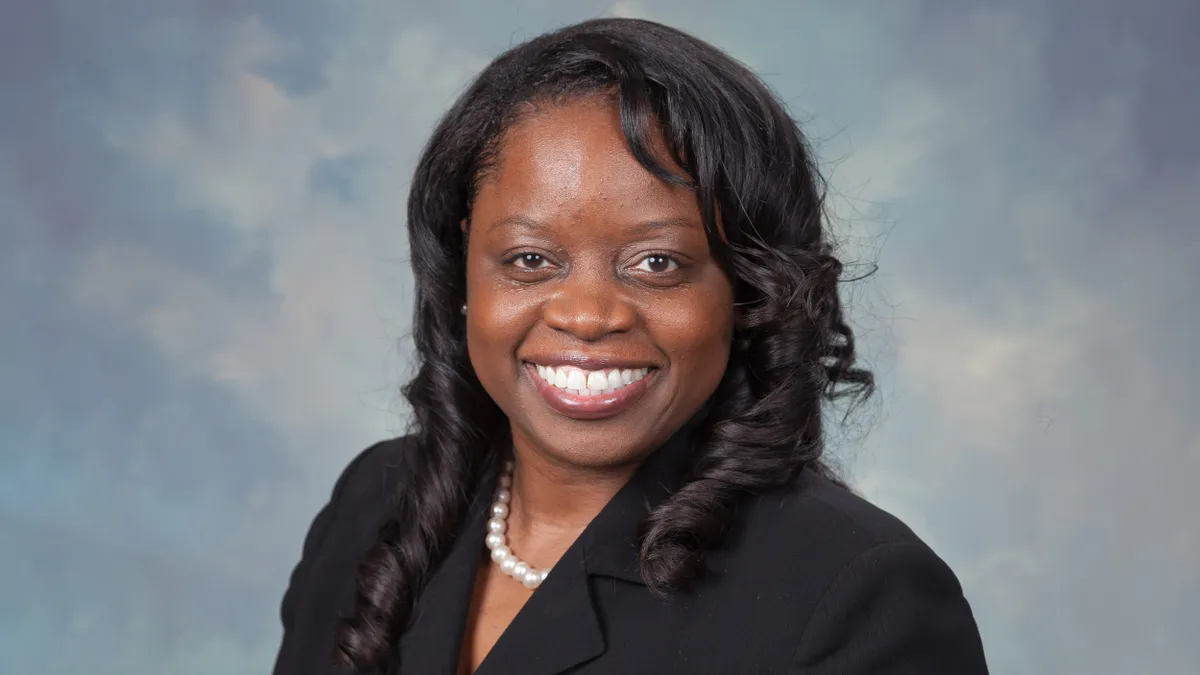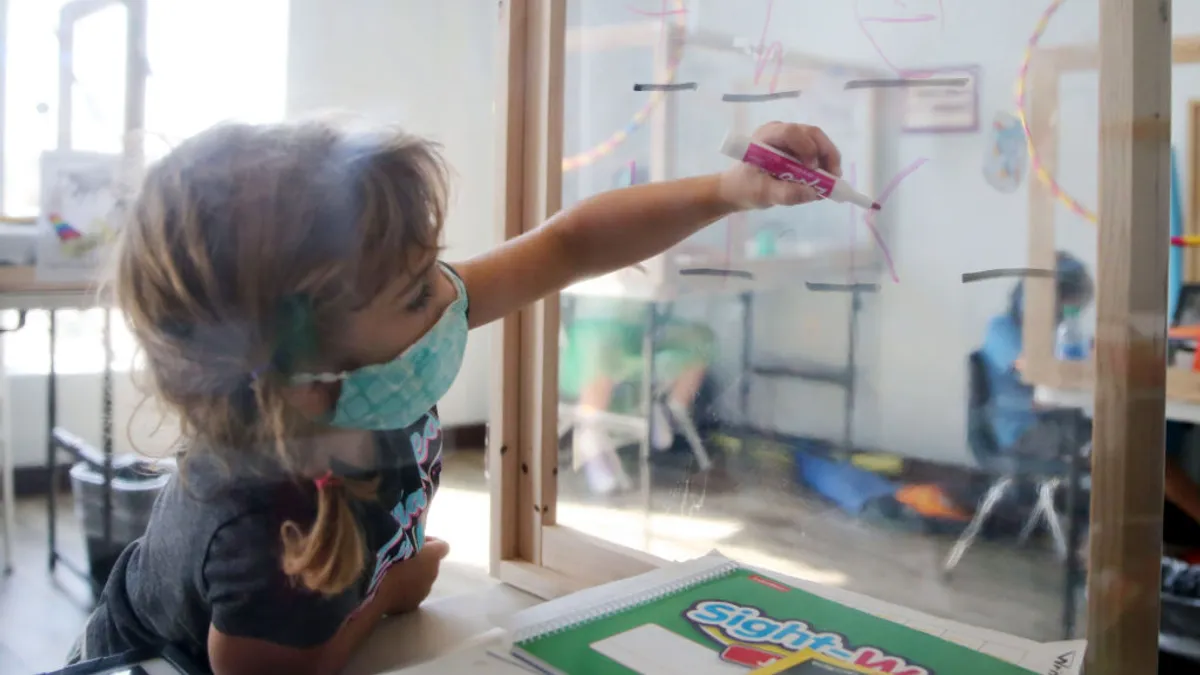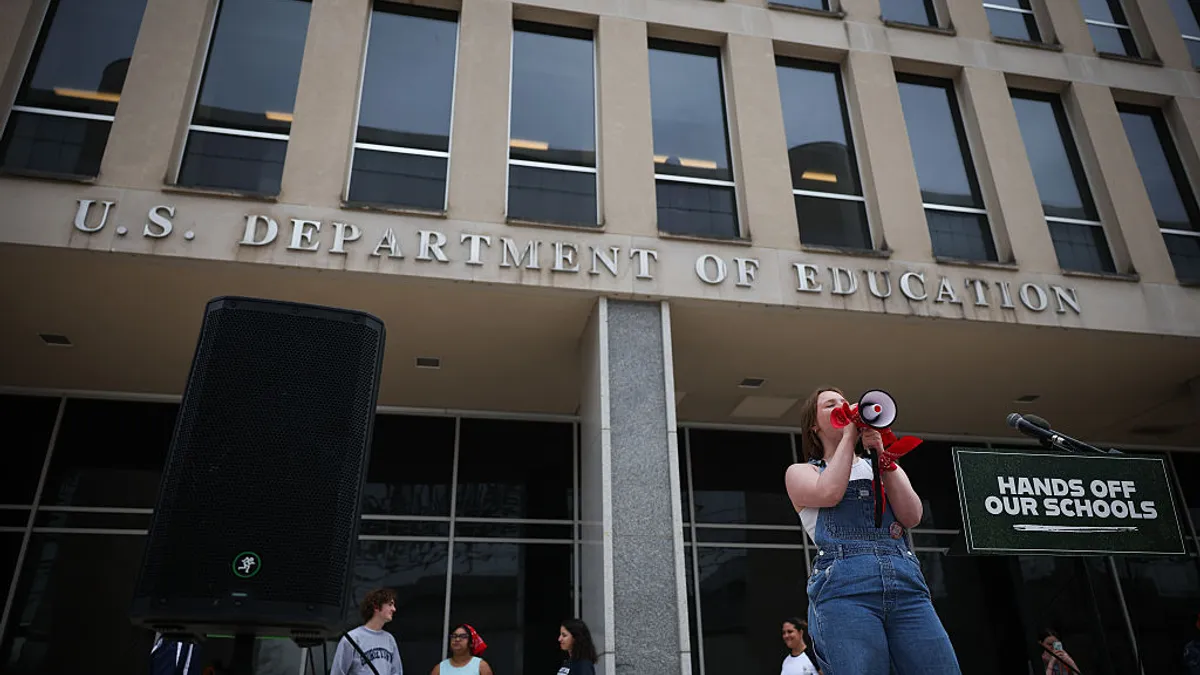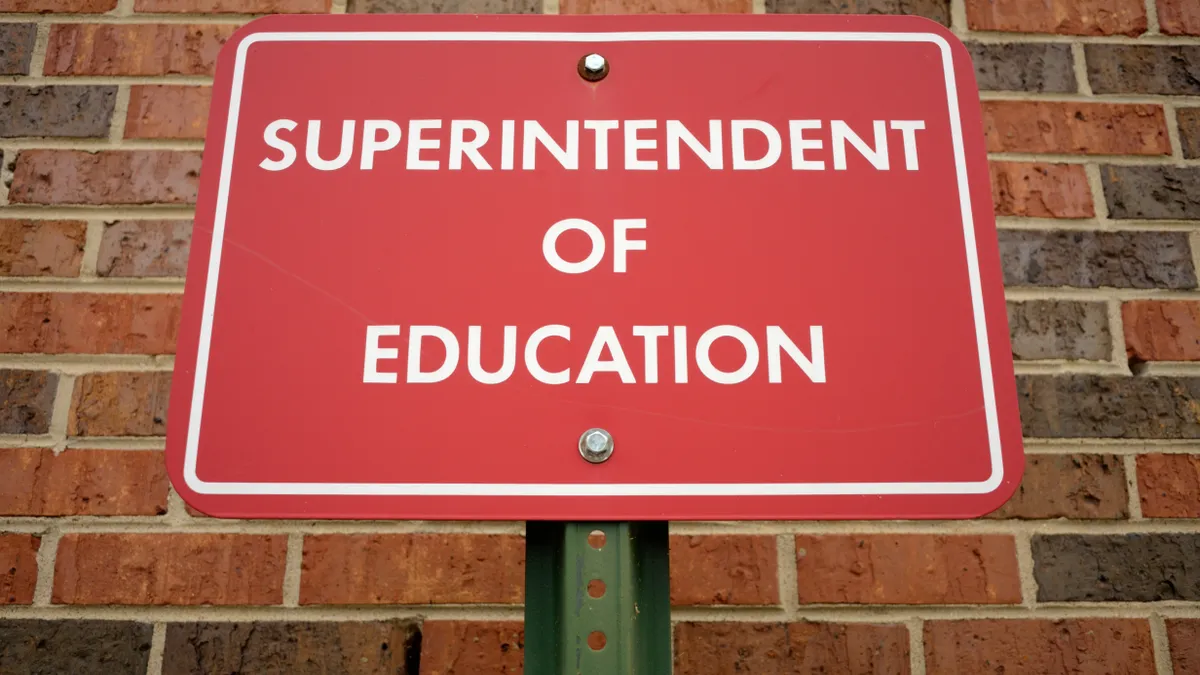“If you know my story, you know … no one would've expected me to be a superintendent or educator at all,” says LaTonya Goffney, now going on her fourth year leading Aldine Independent School District in Houston, Texas, and her 15th overall as a superintendent in the Lone Star State.
Though her grandmother and grandfather, who raised her, had only a 5th grade and 3rd grade education respectively, Goffney says they — along with her teachers and others — instilled “the power" of education in her from an early age. “Education truly changed the trajectory of my life,” Goffney says. She was the first in her family to go to college, and she always wanted the opportunity to make a difference.
Beginning her education career in small-town Coldspring, Texas, she initially never aimed to rise through the ranks to become superintendent but she quickly felt called to it. In 2008, at age 31, she became the state’s youngest district leader, overseeing a school system with around 1,500 students.
From there, her calling guided her to Lufkin Independent School District in Deep East Texas, where she was recruited by headhunters who “just wanted to see who this young superintendent was.”
Then, in 2018, another headhunter approached her and said, “Hey, Aldine's open and you've done good work. They have a population of kids who need good leadership,” Goffney says.
Tear down assumptions and demonstrate what’s possible
First things first: There is no Aldine, Texas.
“I say this all the time: If you've ever flown into Bush Intercontinental Airport, you were in the middle of Aldine,” Goffney says. “Aldine's part of North Houston. It’s 111 square miles of wonderful opportunity.”
Within that 111 square miles reside 62,000 students. The district employs nearly 4,000 teachers and about 9,000 people overall. Nine out of 10 students qualify for free or reduced-price lunch, 73% are Hispanic, 23% are Black, and about 4% White and Asian, Goffney told K-12 Dive.
“In Aldine, ‘all’ means ‘all,’” Goffney says. “Since day one, we have been trying to identify strategies that are going to help us get better faster — but more importantly, strategies that are going to make sure our students graduate with choices and opportunities.”
It’s a vision clearly stated across all levels of the district.
“Every time she talks about our students, there's no demographics. There's no race. There's no nothing,” says Nereida Ochoa, principal of Thompson Elementary. “Every single kid that's in Aldine should have the same opportunities and choices.”
Parents aren’t exempt, either. “She created a program that had parents going through a cohort, and there could have been 25-plus parents who took classes over a period of time and had a graduation,” says Randy Bates, president of the Aldine ISD school board. “When I say they had a graduation, I'm saying she had a graduation — cap, gown, commencement speaker.”
The classes, known as “Family and Community University,” include a variety of workshops and activities that cover everything from supporting students’ academic success to developing new skills through continuing education.
In providing the opportunity for a graduation experience to Aldine ISD family members who had never graduated from high school themselves, Goffney increased their engagement with the district and encouraged others to do so, Bates says. “I have not seen the kind of excitement and pride that these parents who are members of our community, the accomplishment that they felt by going through this particular program.”
Goffney is also mindful, however, that her district must be sure to tell and own its story. And the one way she absolutely doesn’t want to do that is in a way “so you can feel sorry for us or you can lower your expectations or so on and so forth because we serve Black and brown students in poverty.”
“The reality is there is a context, and people need to know that context,” Goffney says. “So I've been vocal and also intentional about making sure people know where Aldine is, how Aldine has been impacted by certain things, and how other initiatives could benefit Aldine moving forward.”
Case in point: Early on in her tenure, a Houston Chronicle news article identified the district’s schools as being among the most dangerous schools in the state. But, as Goffney would learn, this was based on the number of discipline referrals, and district policy at that time had been to document and report every referral.
“So if you don't have a name badge, you get a referral. If you haven’t shaved, you get a referral. Everything's a referral,” Goffney says. “I went and visited every high school in Aldine, and I saw good kids, great staff — but that's the story that was out there.”
While Goffney and her team work to focus the district’s website and social presence — as well as the stories they share with local media — on the good things, she says it’s also critical to share when something bad happens from the perspective of, “This is what happened, and this is not who we are. This is what happened and how we responded to it.”
“We have to share and tell our story,” Goffney says. “We have to talk about the great things that are happening, because otherwise, if we're waiting on the media or someone else, when people see a school [district] with our demographics, then they have these assumptions. So we have to tear down those assumptions and demonstrate what's possible.”
Catching a rising ‘STAAR’
After taking the reins of Aldine, Goffney set out to enact an ambitious strategic plan in 2019 focused on high-quality instructional materials and professional development to ensure all students have a chance to learn on grade level and receive mental health and social-emotional support. The plan also calls for mission-driven leadership and attracting and retaining the best staff possible to address these priorities.
If you had asked her about progress on those goals prior to the COVID-19 pandemic, Goffney says, “I'd have been filled with just optimism and hope and just excitement” because those efforts were beginning to move the needle on metrics like results on the State of Texas Assessments of Academic Readiness (STAAR) results.
“When we pivoted and had to give devices out, we had to … not only provide the devices, but also provide the access points,” Goffney says. Highlighting COVID-19’s impact on the community, Aldine’s ZIP code topped the highest percentage of positivity rates.
Still, she led educators and staff in the district to persist. The district created care teams to visit families and provide the level of support they were used to and ensure students had devices, hot spots and other resources they needed for learning.
“I am proud that our teachers were able to not allow COVID to become a new excuse, that we knew we were gonna come out and we wanted to be stronger when we came out,” Goffney says. “So we did launch high-quality instructional materials. We did provide the PD and the support as teachers were doing it virtually. And then as we came back, we did launch family and community engagement, all the different priorities. We didn't let it stop.”
The fruit of those efforts can be seen in spring 2022 state test results, which improved across all subjects and grade levels. Most notably:
- Elementary students outperformed the state average in reading and math across grade levels.
- 8th graders outperformed the state in reading, math, science and social studies.
- High schoolers outperformed the state in Algebra I, biology, U.S. history, and English II.
- Kindergarten reading growth on universal screeners outpaced the national average.
- The number of schools graded A or B by the state doubled to 33 from the last time ratings were calculated in 2019.
But in celebrating these accomplishments, Goffney also stresses that no leader is an island, and that it was a team effort. And that, Bates says, is what has stood out most about her since the board first considered her for the superintendency in 2018.
“One thing I noticed about her that none of the other superintendents did was she said ‘my team.’ She emphasized her team. No other superintendent [interviewed] talked about their team. They talked about what they were doing, but they didn't talk about the team,” Bates says. “She just has a humble spirit, you know?”






















